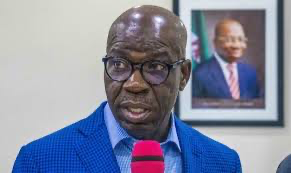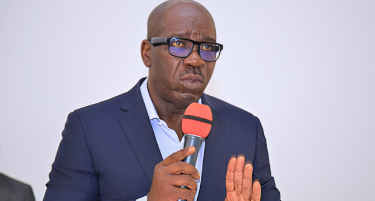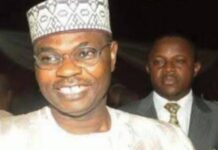Edo State Governor, Godwin Obaseki, has officially signed into law a revised supplementary budget totaling ₦450 billion. The signing took place on Tuesday at the Executive Council Chamber in the Government House, Benin City.
This revised budget marks a significant step in the state’s economic planning, with a particular focus on fostering the growth of small and medium-sized enterprises (SMEs) within Edo State. The governor emphasized that approximately ₦5 billion has been earmarked to specifically support and boost these small businesses, recognizing their crucial role in the local economy.
During the budget signing ceremony, Governor Obaseki expressed his deep gratitude to the Speaker and the members of the Edo State House of Assembly (EDHA) for their swift and cooperative response in approving the revised supplementary budget.
He noted the urgency of the situation, which had prompted him to meet with the Speaker and the appropriation committee to discuss the necessity of revising the budget that had previously been approved.
 Governor Obaseki explained that the need for a revised budget became apparent following a thorough review and analysis of the state’s financial situation. The original 2023 budget, which stood at around ₦225 billion, was based on an exchange rate of approximately ₦750.
Governor Obaseki explained that the need for a revised budget became apparent following a thorough review and analysis of the state’s financial situation. The original 2023 budget, which stood at around ₦225 billion, was based on an exchange rate of approximately ₦750.
However, as economic conditions evolved, it became clear that the budget needed to be adjusted to align with current realities, particularly to support the state’s economic growth ambitions.
In response to these changing circumstances, the state government decided to significantly increase the budget size. According to Governor Obaseki, this increase was not just about doubling the budget but also about enhancing its efficiency. He highlighted that the state is on track to achieve a 95 percent performance rate on this revised budget, which is a significant improvement from previous years.
One of the key features of the revised budget is the shift in focus towards capital expenditure. The governor pointed out that the new budget allocates 57 percent of its total towards capital projects, compared to the previous allocation which had a ratio of 55 percent for capital and 45 percent for recurrent expenditures. This shift is designed to ensure that more resources are directed towards projects that will have a direct and positive impact on the people of Edo State.
Governor Obaseki also took the opportunity to address concerns raised by citizens during recent protests across Nigeria, including in Edo State, regarding the deteriorating welfare of the populace. He acknowledged the importance of these concerns and assured that the revised budget includes provisions to address them, particularly through increased capital expenditure aimed at improving public services and infrastructure.
In closing, Governor Obaseki reiterated the state government’s commitment to efficient and effective budgeting, ensuring that every naira spent brings tangible benefits to the people of Edo State. He expressed confidence that the revised supplementary budget will help propel the state’s economy forward, while also addressing the immediate needs of its citizens.




